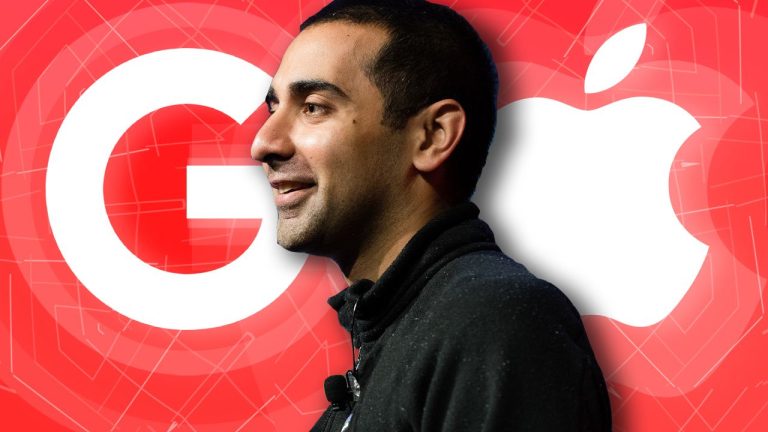‘Apple and Google Are Systemic Risks to Crypto,’ Says Ex-Coinbase CTO
Publikováno: 21.5.2023
 Authorities in the U.S. and elsewhere may try to compel tech firms like Apple and Google to exfiltrate private keys from devices and apps under their control, crypto entrepreneur Balaji Srinivasan warned on social media. The former executive of Coinbase believes this would be done to remit funds to cash-hungry governments. Tech Giants Apple, Google […]
Authorities in the U.S. and elsewhere may try to compel tech firms like Apple and Google to exfiltrate private keys from devices and apps under their control, crypto entrepreneur Balaji Srinivasan warned on social media. The former executive of Coinbase believes this would be done to remit funds to cash-hungry governments. Tech Giants Apple, Google […]

Authorities in the U.S. and elsewhere may try to compel tech firms like Apple and Google to exfiltrate private keys from devices and apps under their control, crypto entrepreneur Balaji Srinivasan warned on social media. The former executive of Coinbase believes this would be done to remit funds to cash-hungry governments.
Tech Giants Apple, Google Could Extract Private Keys From iPhone and Android Devices, Srinivasan Fears
If having sufficient bitcoin becomes the most important political issue in the coming years, bankrupt governments may attempt to get hold of some of people’s crypto, according to Balaji Srinivasan, former chief technology officer (CTO) at crypto exchange Coinbase.
While a conventional 51% attack through mining isn’t something the U.S. could easily pull off now, it may try to compel Apple, Google and other tech companies “to hunt for private keys on the servers, devices, and browsers they control. And to remit any stolen funds to a cash-hungry federal government,” Srinivasan tweeted on Friday.
Apple and Google are systemic risks to crypto.
If weaponized by the federal government, they could backdoor iPhone and Android to exfiltrate private keys.
— Balaji (@balajis) May 19, 2023
“This isn’t cyberterrorism, it’s cyberwar. It’s not some random hacker who manages to sneak out a file. It’s when the CEO of a company gives the lawful order to hack their customers,” the entrepreneur elaborated, pointing to what happened with millions of Russians in the spring of 2022 when “every tech company turned on their former customers.” He also suggested a possible target:
We’re talking billions of iPhones and Android phones, Mac laptops and Chrome browsers, Google Docs and Gmail. China could do the same with the Chinese smartphone manufacturers.
“If you can’t trust the operating system itself, things get tricky,” Balaji Srinivasan says. He thinks Linux can be employed as an alternative but notes that Linux-based devices may not scale in time. “Exchanges built on Linux are another possible answer, but those are of course custodial and possibly also vulnerable to similar attacks,” the ex-Coinbase executive added, concluding:
I don’t have all the answers, but I want to raise the question to get us to start thinking about it. It’s possible that the answer here is in part social or political, not simply technological.
In the beginning of May, Srinivasan closed out early a bet that the price of bitcoin would hit $1 million by mid-June amid hyperinflation of the U.S. dollar. “I just burned a million to tell you they’re printing trillions,” he said in a blog post, warning that the world is facing not just a financial but a fiat crisis, with a meltdown likely to be worse than the previous.
Do you share Balaji Srinivasan’s concerns about crypto holdings and tech giants? Tells us what you think on the subject in the comments section below.